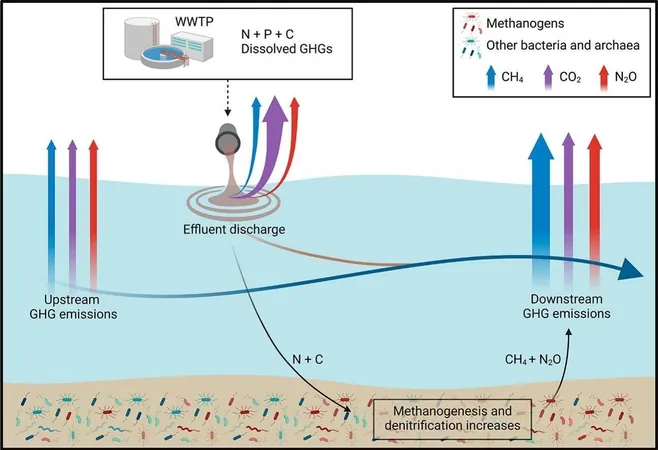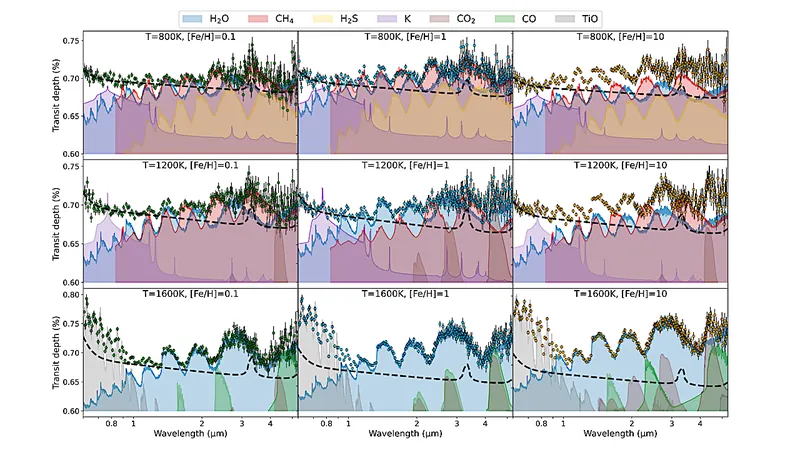
The Race for Smarter AI: How OpenAI and Competitors Are Reshaping the Future of Artificial Intelligence
2024-11-11
Author: Noah
Introduction
Artificial intelligence (AI) is on the brink of a paradigm shift as leading companies like OpenAI grapple with the challenges and limitations of current approaches in training large language models. While the tech world has relied heavily on the idea that 'more data equals better performance,' AI scientists are beginning to advocate for innovative techniques that mimic human cognitive processes to propel advancements in AI.
Market Valuations and the Scaling Debate
After the transformative release of ChatGPT, tech giants have enjoyed a significant boost in valuations, but a growing chorus of experts is questioning the sustainability of scaling up AI models simply by increasing data and computing power. Ilya Sutskever, co-founder of OpenAI, recently highlighted a critical turning point: 'The 2010s were the age of scaling, now we're back in the age of wonder and discovery,' he remarked, referring to a stagnation in performance gains from traditional scaling methods.
Challenges in Model Training
AI researchers are reporting unexpected delays and disappointing results as they chase a new large language model capable of surpassing OpenAI's GPT-4, which has been in circulation for nearly two years. With training runs costing tens of millions of dollars and the risk of hardware-induced failures being high, the complexity and unpredictability of the current model training process have come under scrutiny. Moreover, many AI models have nearly exhausted accessible data sources, and current energy shortages are further compounding the issue.
Test-Time Compute
To tackle these pressing challenges, a focus has shifted toward a concept known as 'test-time compute.' This involves enhancing existing AI performance during the inference phase—essentially when the AI is actively making decisions. By allowing models to explore multiple potential answers in real time rather than selecting a single option instantly, these AI systems can more closely replicate human reasoning abilities. Recent studies show that even allowing a bot to think for just 20 seconds in complex scenarios yields dramatic improvements, equating to massive scaling efforts that would otherwise require extensive resources.
OpenAI's New Model and Competitor Responses
OpenAI's newest model, known as 'o1,' embraces this innovative approach, enabling multi-step problem-solving akin to human thought processes. It incorporates curated data and expert feedback, representing a departure from purely exponential scaling methods. Competitors like Anthropic and Google's DeepMind are also exploring similar avenues, aware that the need for effective resource use is more important than ever.
Changing Demand Dynamics
This shift in strategy signals a fundamental change in demand dynamics for AI hardware, primarily influenced by strong reliance on Nvidia's advanced AI chips. While Nvidia has thrived on the enormous appetite for training chips, it may face increased competition in the inference sector as the landscape evolves. Industry veterans from leading venture capital firms are closely monitoring these developments, ready to reassess their investments based on the new trajectory of AI research and hardware needs.
Nvidia's Response and Market Outlook
Nvidia's CEO, Jensen Huang, has noted the rising demand for inference-capable chips, underscoring the firm's strategy to leverage the emerging scaling laws underpinning models like o1. As this wave of innovation takes shape, the AI landscape is poised for transformative changes that will dictate which companies lead and which fall behind in this burgeoning field.
Conclusion
The stakes have never been higher in the AI arms race, and as tech titans pursue smarter, more efficient systems, the industry may witness a major reshuffling in terms of leadership and capabilities. Are we on the cusp of a new AI evolution? Only time will tell, but one thing is clear: the future of AI is being rewritten as we speak.









 Brasil (PT)
Brasil (PT)
 Canada (EN)
Canada (EN)
 Chile (ES)
Chile (ES)
 España (ES)
España (ES)
 France (FR)
France (FR)
 Hong Kong (EN)
Hong Kong (EN)
 Italia (IT)
Italia (IT)
 日本 (JA)
日本 (JA)
 Magyarország (HU)
Magyarország (HU)
 Norge (NO)
Norge (NO)
 Polska (PL)
Polska (PL)
 Schweiz (DE)
Schweiz (DE)
 Singapore (EN)
Singapore (EN)
 Sverige (SV)
Sverige (SV)
 Suomi (FI)
Suomi (FI)
 Türkiye (TR)
Türkiye (TR)